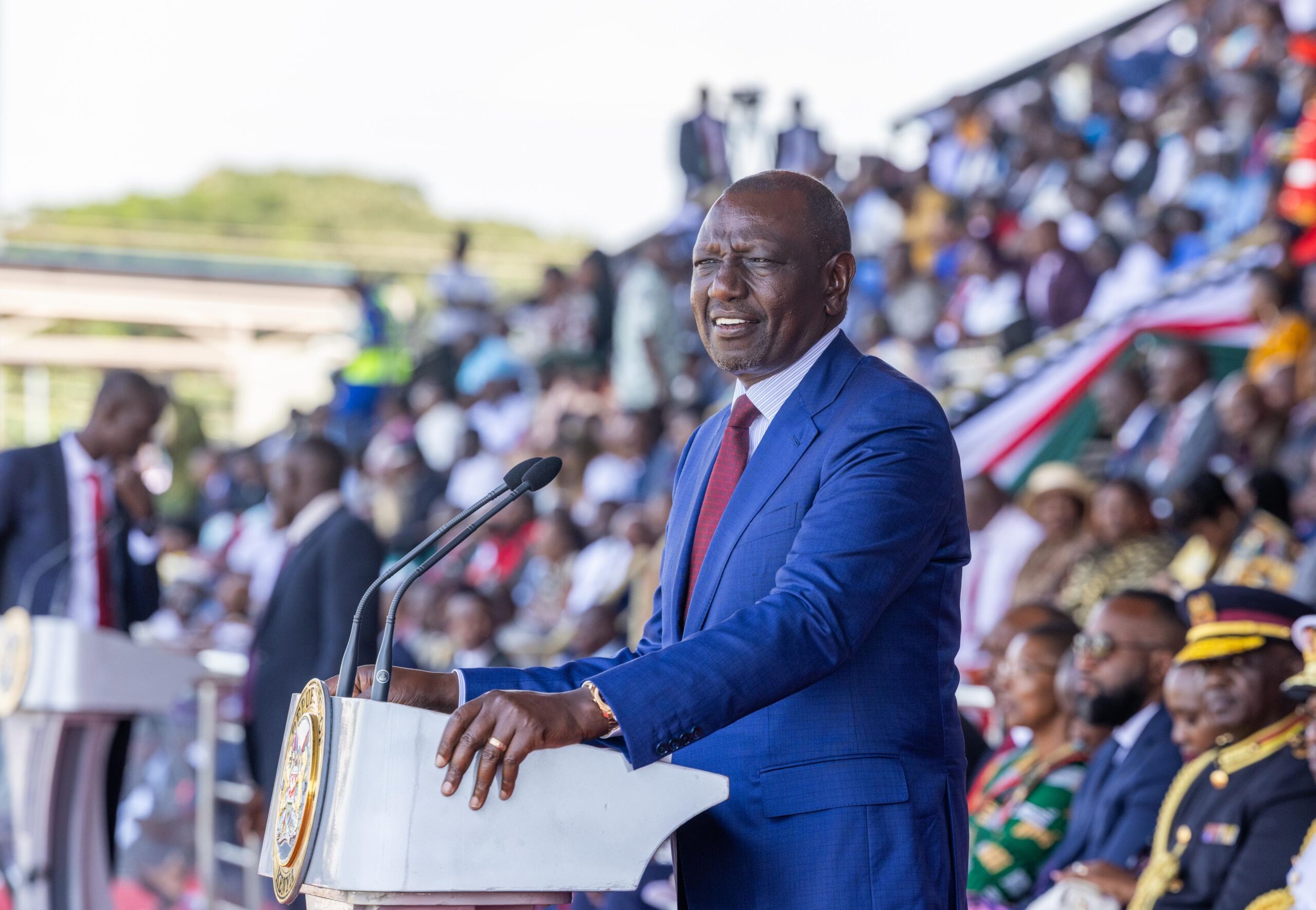
Ruto touts successes in housing, healthcare as he defends his record » Capital News
NAIROBI, Kenya, June 1 — President William Ruto has defended his administration’s record, touting a raft of social and economic programs as he led the nation in commemorating the 62nd Madaraka Day celebrations in Homa Bay.
President Ruto described his government’s “pro-people policies” as tangible proof of his administration’s Bottom-Up Economic Transformation Agenda (BETA) development blueprint at work.
“Today, it is a lived reality for millions of Kenyans, transforming lives and reshaping destinies across the country, day by day,” said Ruto on Sunday.
“If you didn’t understand what we meant by ‘bottom-up’, now you do. If you didn’t believe, now you believe.”
Ruto described the Affordable Housing Programme as a cornerstone of his government’s pro-people agenda, citing recent handovers in Nairobi and Homa Bay.
He praised the program’s success in offering rent-to-own opportunities for low-income earners.
“To see families move from the hardship of overcrowded slums to the comfort of permanent homes… was a powerful reminder of what pro-people policies can deliver,” he said.
He announced a proposal to Parliament to allow contributors to the housing levy to access affordable home loans of up to Sh5 million at single-digit interest rates — a move aimed at expanding homeownership across the country.
“Every shilling contributed to the Housing Levy will work for the contributor,” Ruto stated.
Healthcare reforms
On universal healthcare, President Ruto highlighted the progress of the Social Health Authority (SHA) and the Taifa Care program, with 23 million Kenyans registered and Sh43 billion in claims paid covering 4.5 million patients.
“SHA is working,” Ruto declared. “Universal Healthcare Coverage is now serving Kenyans and leaving nobody behind.”
He announced the launch of ‘Lipa SHA PolePole’, a flexible installment-based SHA contribution platform via USSD *147#, targeting informal sector households to maintain consistent coverage.
“No Kenyan should have to choose between life-saving treatment and their dignity,” he said, urging mass registration with SHA.
Ruto unveiled a Sh20 billion NYOTA program, a World Bank-backed youth empowerment initiative that will benefit over 800,000 youth with business training, grants, and job experience.
“We have committed Sh5 billion in grants to support 100,000 young people, each receiving Sh50,000 in seed capital by August this year,” he announced.
He also announced the nationwide rollout of Climate Worx, an employment program for 110,000 youth to work on climate-related public projects such as tree planting, road construction, and sanitation in informal settlements.
Infrastructure and economic growth
On infrastructure, Ruto confirmed that construction of the Rironi–Mau Summit dual carriageway will begin in July, with future extension to Eldoret and Malaba.
He also noted the planned SGR extension to Kisumu and Malaba saying government had finalised talks on the project.
Addressing concerns about the leasing of state-owned sugar mills, Ruto defended the move as a strategy for modernization and efficiency, not privatization.
“Let it be clearly understood: neither the factories nor their assets, including land, have been sold. They remain public property,” he clarified.
President Ruto said Kenya’s economy is on a path to long-term prosperity, with a 5 per cent growth rate, rising GDP, a strengthening shilling, and improved inflation levels.
“This reflects the strength of our economic fundamentals and the impact of our bold reforms,” he noted.
Ruto called on Kenyans to remain steadfast in their belief in the nation’s potential.
“Let us never become a nation that stopped believing, nor a people who only dreamt but were too afraid to act,” he said.
Sunday’s national celebrations in Homa Bay were graced by a host of leaders including visiting Slovenian President Nataša Pirc Musar.
Musar, who was the guest of honour at the event, urged Kenyans to remain vigilant in safeguarding the ideals of independence and resist condescending attitudes from former colonial powers.
Invoking the legacy of founding President Jomo Kenyatta, she observed that Kenyatta not only led Kenya to independence but also envisioned a united Africa — an ambition that she said remains as urgent today as it was decades ago.
She drew parallels between Kenya’s post-independence path and Slovenia’s own experiences as part of the former Yugoslavia.
Reflecting on the Non-Aligned Movement, Musar said its message, that smaller nations need not be beholden to the interests of global superpowers, remains relevant in today’s multipolar world.